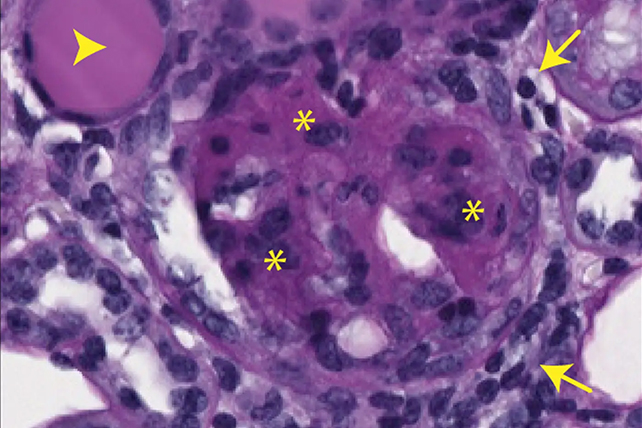Researchers have discovered a key molecular process that may contribute to chronic inflammation as we age. If this process can be accurately targeted, it could unlock ways to stay healthier in our later years.
The discovery centers on the unique strands of DNA contained within our mitochondria, the power stations of our cells. By banishing their 'mtDNA' into the surrounding cytoplasm, mitochondria can cause inflammation. Yet just how or why this happens has never been well understood.
In this study, researchers led by a team from the Max Planck Institute for Biology of Ageing in Germany analyzed tissue samples from humans and test animals, using mice genetically engineered to be models of aging and disease.
Related: Switching Off One Crucial Protein Appears to Reverse Brain Aging in Mice
They found that when mtDNA can't find enough DNA building blocks (deoxyribonucleotides) for replication, it picks up RNA building blocks (ribonucleotides) instead. This mistake in construction causes instability in the mtDNA, which leads to it being ejected from the organelle.
"Our findings explain on a molecular level how metabolic disturbances can lead to inflammation in senescent cells and in aged tissue and open up new strategies for possible interventions," says molecular biologist Thomas Langer, from the Max Planck Institute for Biology of Ageing.

Past research has shown that deoxyribonucleotides become less abundant as we grow older, meaning there are fewer genetic building blocks in older cells and in tissues that are senescent, or effectively retired from active duty.
This latest investigation reveals that a lack of these building blocks causes mtDNA to pick up ribonucleotides instead, which may explain why mitochondria reject 'imperfect' copies of this molecule.
That rejection is potentially one of the key drivers behind the inflammation that comes with old age, and the negative health consequences associated with it – from certain types of cancer to neurodegenerative diseases like Alzheimer's.
"This response provides protection against pathogens but can also promote autoimmune and inflammatory diseases and contribute to senescence and aging," write the researchers in their published paper.
It's yet to be determined how much this type of inflammation occurs during the normal aging process, or whether it takes place under specific conditions.
Humans are living longer than ever before, and that means all of the biological machinery in our bodies is working overtime. As the years go by, stress, damage, and inflammation stack up, leading to poor health.
If we can understand more about how to cut out some of that damage – how to stop mtDNA making these particular mistakes in replication, for example – then we're possibly on the way to developing ways of keeping our cells in better shape in old age.
"There is already a therapy for certain mitochondrial diseases that involves administering DNA building blocks," says molecular biologist Dusanka Milenkovic, from the Max Planck Institute for Biology of Ageing.
"However, we do not yet know if it can also alleviate the inflammation that occurs more frequently with age. It would be interesting to test this."
The research has been published in Nature.
